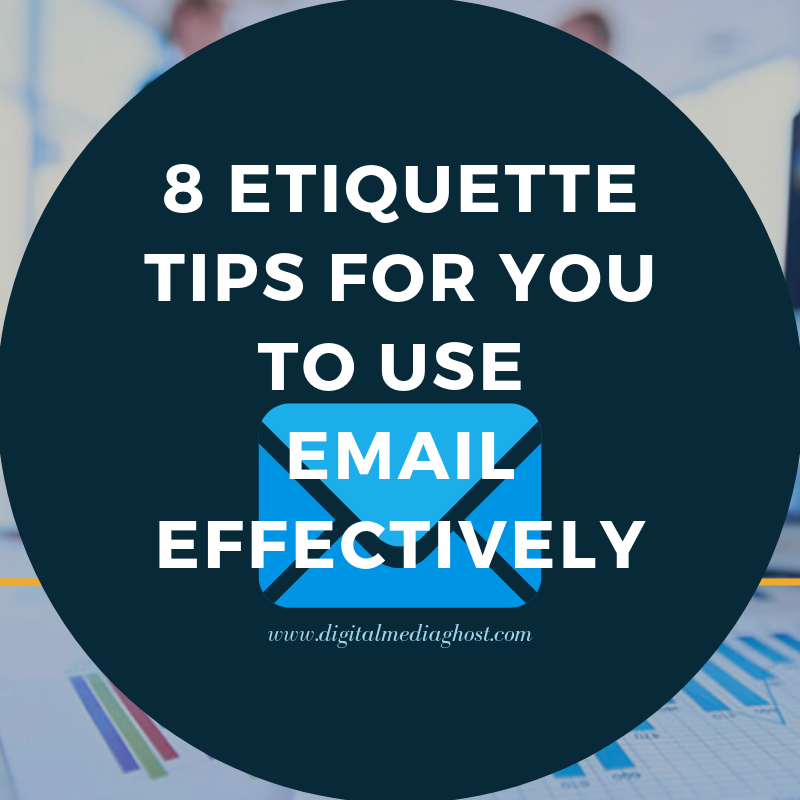Here are eight etiquette tips: 1. Think Before Writing Before you start composing an email, think what you want to do and whether the email is effective for this. For example, if you're trying to solve someone's problem, a connection is best. If you need to explain a procedure, show it in person or via the web is almost always more effective than by email. If you need to resolve an urgent matter with a co-worker in the office, talk to him in person. 2. Be Simple Email works best for simple requests and messages that can be expressed within two lines, such as, "Can you meet me at 4pm?" or "Do you have this data?" If your message requires more than two exchanges, email is not a good tool. When e-mail begins to expand into long strings, people often forget the original subject. 3. Keep It Short People like to email because it is quick and easy. But the bigger and more complicated your message, the longer it will take you to compose and the recipient to understand. "If an email requires more than 12 lines and two threads, you're wasting everyone's time and diluting your message," says Zoe Talent Solutions. 4. Make the "subject" field go straight to the point People use the "subject" field in their to-do list. To help your recipient prioritize and understand their needs, the subject of their emails should be very clear. "Tell your recipient what you need in the subject line," says Zoe Talent Solutions. "So, instead of marking the email as high, medium or low priority, 5. Structure "A good email needs an opening, body and conclusion," says Zoe Talent Solutions. The goal should be clear in the body, along with all the details and actions that need to be taken. The sentences should be 15 words or less. If there are three or more bullets, use bullets. In addition, the opening and closing paragraphs shall not exceed seven lines, and the body shall not exceed five lines. 6. Take advantage of your message Zoe Talent Solutions recommends asking the recipient: "Is there anything I can do to help? Is there enough information?" 7. Avoid words and phrases that put people on the defensive The way you communicate via email expresses how you behave professionally. Avoid heavy language and sarcasm, which is not easily detected in email. Even if someone sends you a rude email, you have a chance to respond professionally. She also recommends avoiding questions that put people on the defensive, such as, "Why is your project late?" It is best to resolve such thorny issues over the phone or in person. For the same reason, avoid "teasing" such as: "Why do you ...," "You should ...," "I'm sure you'll agree ...," and "I do not understand your ..., "which often indicate a break in communications that email will certainly not fix. 8. The only reason for using blind copy, according to Zoe Talent Solutions, is to keep the recipients' email address a secret. For example, if you want to send an email to everyone on your network to advertise a new job, put everyone in the Bcc field. Do not use the feature to share sensitive parties or incriminating information with anyone. "Responding to Everyone" should simply be avoided, says Zoe Talent Solutions. If, for example, your boss sends a meeting request or link to an article to everyone on your team and you need to respond, do so only to your boss. "Responding to everyone causes other people to waste time," says the consultant. |
Categories
All
Archives
November 2023
|
|
Locations:
New Orleans, LA Nashville, TN |
|
Digital Media Ghost @2020
|



 RSS Feed
RSS Feed
